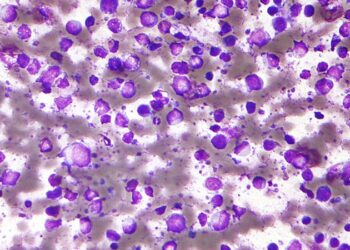TOPLINE:
Long-term use of nonsteroidal anti-inflammatory drugs (NSAIDs) was associated with a 12% reduced risk for dementia in a new study, whereas short- and intermediate-term use showed no protective benefits.
METHODOLOGY:
- Researchers included more than 11,700 dementia-free participants (mean age, 66 years; 60% women) from the prospective population-based Rotterdam Study.
- Participants were screened for dementia during an average follow-up of 14.5 years; 18% of participants received a dementia diagnosis during follow-up.
- Pharmacy dispensing records from 1991 provided detailed information on NSAID prescriptions, and participants were categorized by nonuse and short-term (< 1 month), intermediate-term (1-24 months), and long-term (> 24 months) use. In all, 81% of participants used NSAIDs by the end of follow-up.
- The analysis was adjusted for age, sex, education, lipid and liver enzyme profiles, lifestyle factors, comorbidity, and comedication use.
TAKEAWAY:
- Risk for all-cause dementia was lower for long-term users (hazards ratio [HR], 0.88) and slightly higher for short-term and intermediate-term NSAID users (HR, 1.04 for both) than for nonusers.
- Cumulative NSAID dose was not associated with the risk for dementia.
- Protective effects were stronger with long-term use of non–amyloid-beta (Aβ)–lowering NSAIDs than with Aβ–lowering NSAIDs (HR, 0.79 vs 0.89). The protective effect of long-term NSAID use was observed in participants without the APOE-ε4 allele (HR, 0.86) but not in those who had the allele (HR, 1.02).
- The association of long-term NSAID use with disease occurrence/risk was more pronounced for clinical Alzheimer’s disease (AD) than for all-cause dementia (HR, 0.79).
IN PRACTICE:
“Our study provides evidence on possible preventive effects of anti-inflammatory medication against the dementia process,” corresponding investigator M. Arfan Ikram, MD, PhD, Erasmus MC University Medical Center, Rotterdam, the Netherlands, said in a press release.
“Prolonged rather than intensive exposure to anti-inflammatory medication may hold potential for dementia prevention,” the investigators wrote. However, the results do not justify recommending long-term NSAID treatment for dementia prevention because of the potential for adverse effects, they added, noting that further investigation is warranted.
SOURCE:
The study was led by Ilse vom Hofe, Erasmus University Medical Center, Rotterdam, the Netherlands. It was published online on March 5 in the Journal of the American Geriatrics Society.
LIMITATIONS:
Over-the-counter NSAID use was not considered in the study, potentially leading to the misclassification of exposed participants as unexposed and to attenuated results. Not using biomarkers for diagnosing AD may have also led to potential misclassification. The healthy adherer effect could have influenced the findings, although long-term users did not consistently appear healthier. In addition, the study population was predominantly White individuals, which may have limited the findings’ generalizability to other groups.
DISCLOSURES:
The Rotterdam Study was funded by the Erasmus Medical Center and Erasmus University Rotterdam; Netherlands Organization for Health Research and Development; Research Institute for Diseases in the Elderly; Ministry of Education, Culture, and Science; Ministry for Health, Welfare, and Sports; European Commission (DG XII); and Municipality of Rotterdam. Additional support was provided by the Netherlands Consortium of Dementia Cohorts and Stichting Erasmus Trustfonds. One investigator reported receiving a Young Investigator Grant from the Brain and Behavior Research Foundation, with the support used for this study. The remaining investigators reported no potential conflicts of interest.
This article was created using several editorial tools, including AI, as part of the process. Human editors reviewed this content before publication.
Source link : https://www.medscape.com/viewarticle/long-term-nsaid-use-linked-lower-dementia-risk-2025a10006xc?src=rss
Author :
Publish date : 2025-03-24 11:04:00
Copyright for syndicated content belongs to the linked Source.














